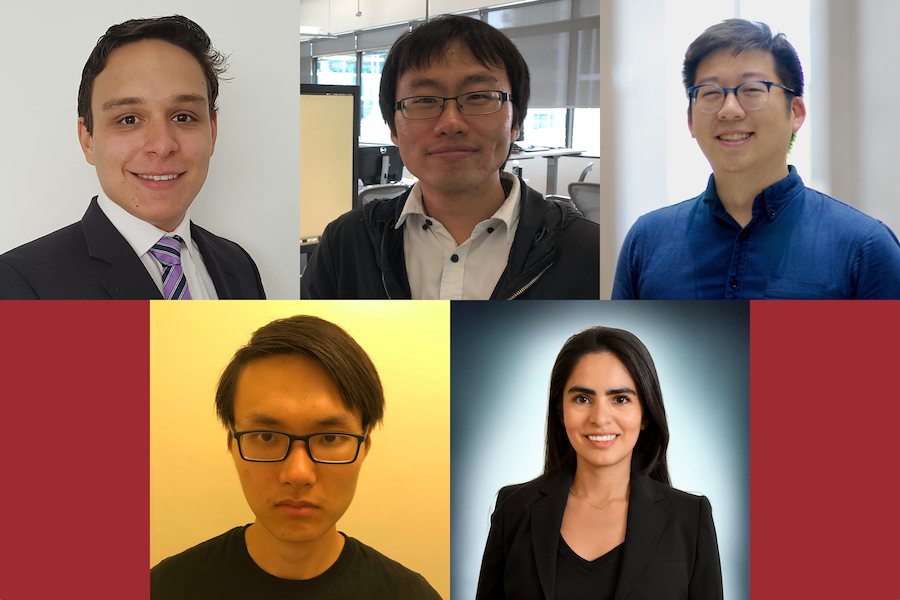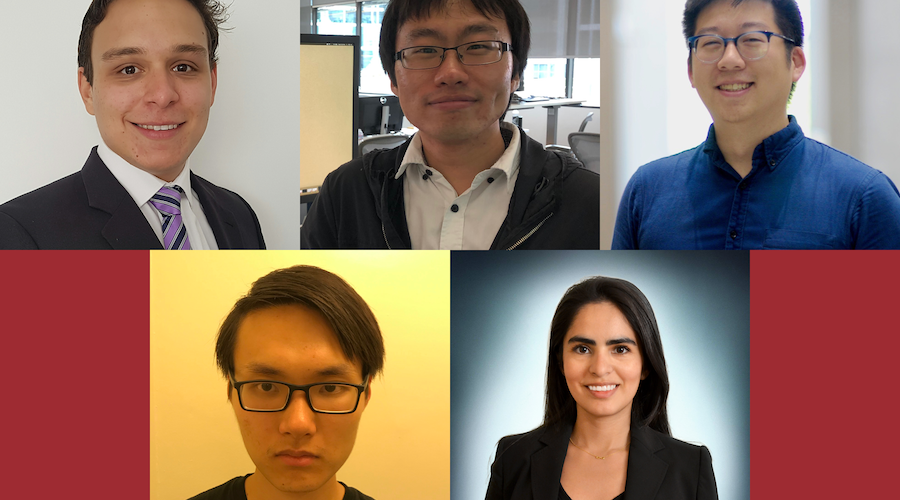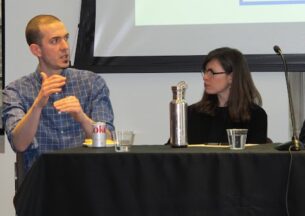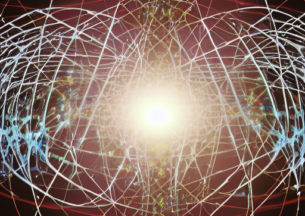Five UChicago CS Students Honored as 2020 Siebel Scholars

Three UChicago CS PhD students and two students from the MS in Computational Analysis and Public Policy (CAPP) program were named to the 2020 class of Siebel Scholars, the Thomas and Stacey Siebel Foundation announced.
Camilo Arias Martelo, Mingzhe Hao, Jonathan Tan, Kevin Yuanshun Yao, and Yuliana Zamora are 5 of this year’s cohort of 93 Siebel Scholars, who are chosen from a select group of graduate schools for business, computer science, energy science and bioengineering. Since 2017, when the University of Chicago Department of Computer Science joined the Siebel program, 13 students have received the prestigious honor, which includes funding for their final year of studies and an invitation to a yearly conference.
The 2020 UChicago Siebel Scholars study topics ranging from machine learning and data science to high-performance computing and distributed systems. They’ve worked with organizations in Mexico, Ghana, Guatemala, and Laos, and mentored students at all educational levels.
“Every year, the Siebel Scholars continue to impress me with their commitment to academics and influencing future society. This year’s class is exceptional, and once again represents the best and brightest minds from around the globe who are advancing innovations in healthcare, artificial intelligence, the environment and more,” said Thomas M. Siebel, Chairman of the Siebel Scholars Foundation. “It is my distinct pleasure to welcome these students into this ever-growing, lifelong community, and I personally look forward to seeing their impact and contributions unfold.”
Read about the UChicago 2020 Siebel Scholars below:
Camilo Arias Martelo, a student in the MS in Computational Analysis and Public Policy (CAPP) program, focuses on the application of data science to questions in economics. Before coming to The University of Chicago, he worked as a Research Assistant in Mexico City in the field of environmental economics. For example, he built tools for automatically gathering real estate data to understand the impact of the 2017 Mexico City earthquake on the housing market. This summer, he is leading a project at the Mexican Ministry of Finance to increase the accuracy of monthly federal tax revenue forecasts using machine learning. Camilo has taken a leadership role in helping students at the Harris School learn how to program and as an orientation leader, helping incoming students acclimate to Chicago and the University. Camilo earned a BA in Economics from Universidad Iberoamericana.
Mingzhe Hao is a Ph.D. candidate in Computer Science, advised by Prof. Haryadi Gunawi. His research interests include storage systems, distributed systems, and operating systems, and mainly focus on identifying real-time performance degradation at the millisecond-to-microsecond-level, and mitigating their negative impacts. He also explores how to combine machine learning and heuristics to make systems run faster. He has received multiple honors and awards including the William Rainey Harper Dissertation Fellowship and an Elastos Fellowship. He also serves in the research community as reviewer for both conferences and journals (FAST, TOS and TOC). As a senior student in the group, Mingzhe has advised more than ten students from different levels (junior PhD, Master Degree, and Undergrad), different backgrounds (on-campus, remote, international), on different aspects (technical research & soft skills), in different projects. Mingzhe holds a B.S. in Computer Science from Shanghai Jiao Tong University and an M.S. in Computer Science from UChicago.
Jonathan Tan, a student in the MS in Computational Analysis and Public Policy (CAPP) program, focuses on using computational techniques and machine learning to extract information from unstructured data (e.g. text or images) to support decision-making in low-resource contexts. For example, he is working on replicating work that used satellite imagery to predict household expenditure and asset ownership at the village level in Pakistan. The resulting data can be used to supplement census data and improve resource allocation. Jonathan is Director of Data Publications at the Chicago Policy Review. He served as a team facilitator for CAPP's 2018 Civic Scopeathon. Prior to graduate school, Jonathan was the Impact Manager for Data Analytics & Visualization at Pencils of Promise, a nonprofit organization providing children with access to quality education in Ghana, Guatemala, and Laos. Jonathan earned a BA in International Relations from New York University.
Kevin Yuanshun Yao is a PhD candidate in Computer Science, working at the SAND Lab. He graduated from the University of Minnesota with a triple major in Computer Science, Mathematics, and Statistics. His research focuses on the security risks of deep learning systems. He studies both the identification, analysis and defense of vulnerabilities in current systems, and the use of deep learning systems as tools for malicious attackers. His publications appear in top venues in a number of research areas, including computer security, data and measurements, and mobile systems. His most recent paper developed a deep learning system that produces online product reviews indistinguishable from real, user-written reviews. As a senior member of SAND Lab, Kevin has mentored numerous graduate and undergraduate students. His work has been covered in media outlets including Wired, Scientific American, Forbes, Fortune, and the New York Post.
Yuliana Zamora, a Ph.D. student in the Department of Computer Science, uses data science and machine learning to optimize scientific applications on supercomputers, making cutting-edge computing power accessible to scientists. She is a National Physical Science Consortium Fellow. Prior to coming to Chicago, she explored methods on optimizing scientific computing applications at Los Alamos National Laboratory. She has won a Best Presentation Award and was invited to present at both the Intel HPC Developers Conference and the Salishan Conference on High-Speed Computing. She is currently co-authoring a textbook, titled 'Parallel and High Performance Computing'. Yuliana shares her passion for computing through community outreach and teaching. She volunteers with several organizations that increase diversity in computer science. She designed and has twice instructed a class for incoming UofC students with no computing background to encourage them to consider computing as a career. She holds a Bachelor’s Degree in Civil Engineering from Cornell University.












